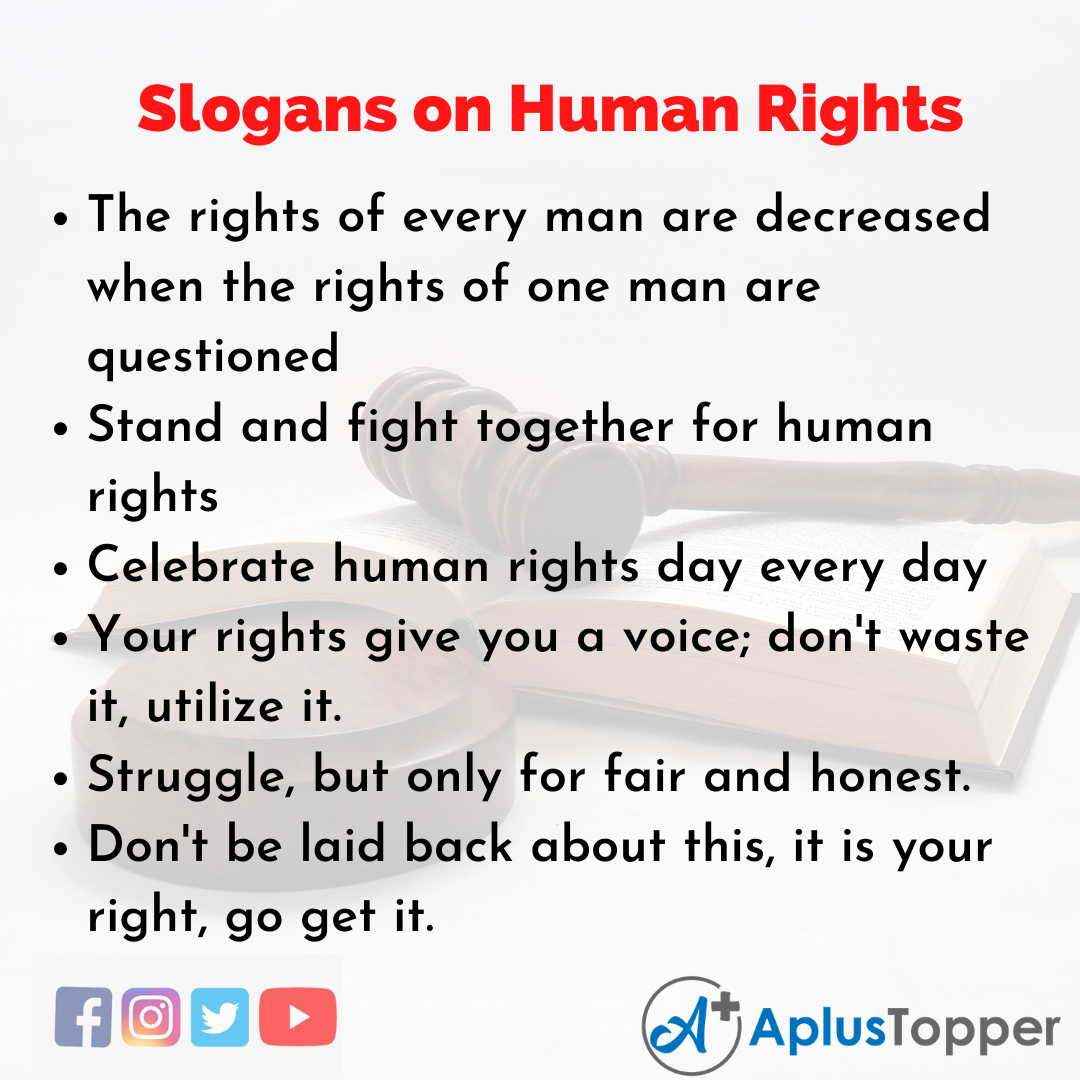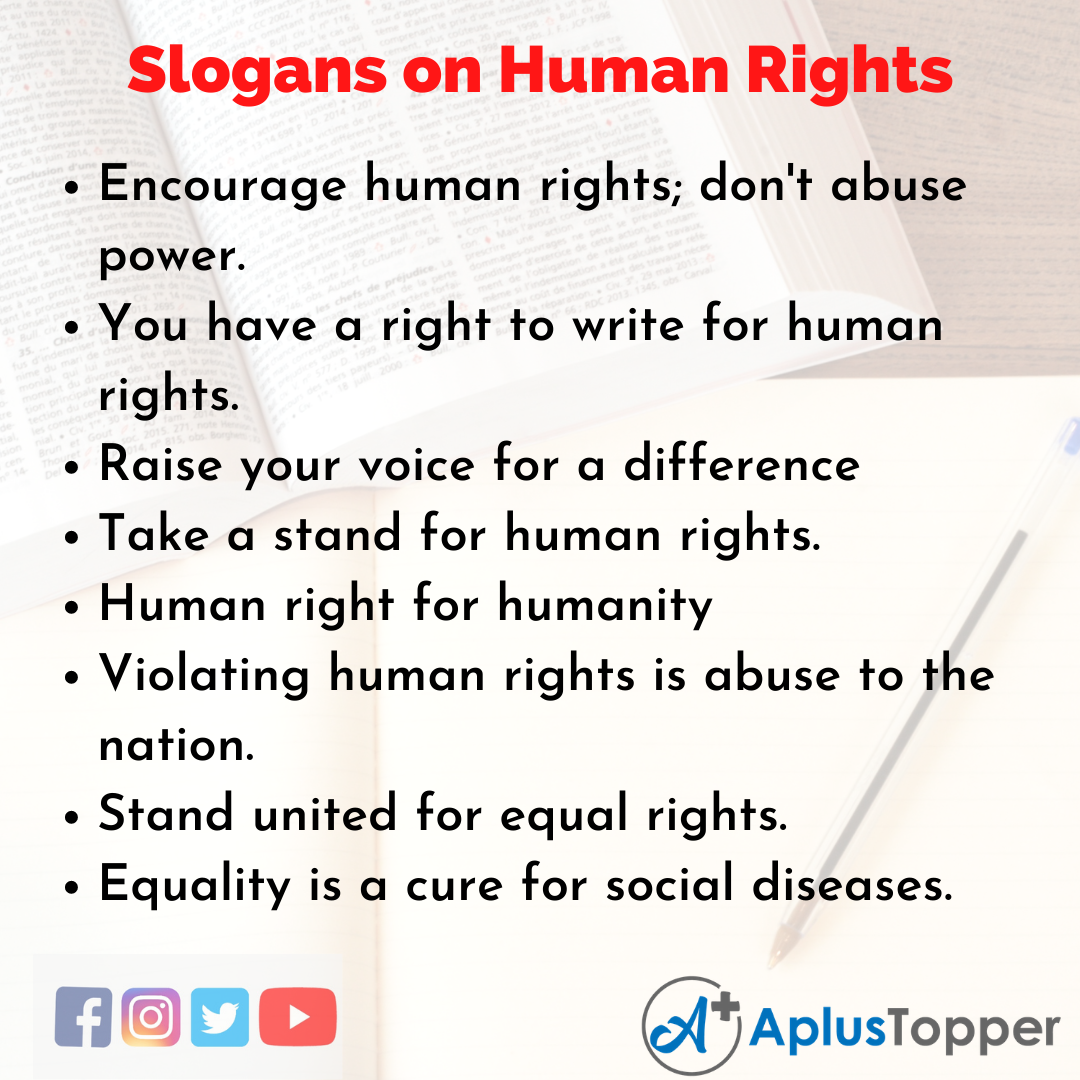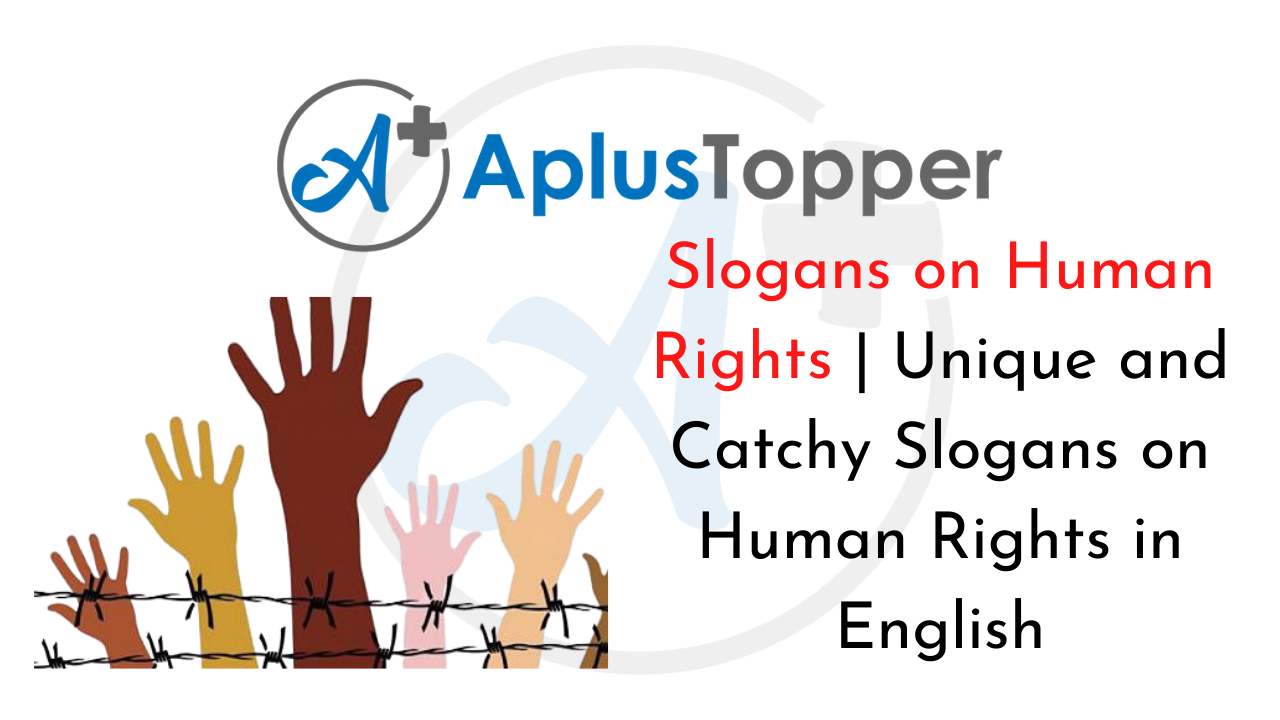Slogans on Human Rights: Human rights are rights inherent to all or any citizenry, no matter race, sex, nationality, ethnicity, language, religion, or the other status. Human rights include the rights over life and liberty, freedom from slavery and torture, freedom of opinion and expression, the right to employment and education, and many other things.
Each and every person is entitled to those rights, without discrimination. Human rights are basic necessities that people need to live a peaceful and happy life. No other person has the right to take away someone’s human rights. Human rights are also called fundamental rights.
Students can read more Slogans about articles, events, people, sports, technology many more.
Slogans on Human Rights in English
The policy of the universality of human rights is the foundation of international human rights law. It suggests that we are all equally entitled to our human rights. As first emphasized within the UDHR, this principle is repeated in many international human rights conventions, declarations, and resolutions. Human rights are inalienable. For instance, the right to liberty could also be restricted if an individual is found guilty of a criminal offense by a court of law.

15 Unique and Catchy Slogans on Human Rights
1. The rights of every man are decreased when the rights of one man are questioned
2. Stand and fight together for human rights
3. Celebrate human rights day every day
4. Your rights give you a voice; don’t waste it, utilize it.
5. Raise your voice and take what is rightfully yours
6. Struggle, but only for fair and honest.
7. Don’t be laid back about this, it is your right, go get it.
8. Encourage human rights; don’t abuse power
9. You have a right to write for human rights.
10. Raise your voice for a difference
11. Take a stand for human rights.
12. Human right for humanity
13. Violating human rights is abuse to the nation.
14. Stand united for equal rights.
15. Equality is a cure for social diseases.

Frequently Asked Questions on Human Rights Slogans
Question 1.
How are human rights described in the Protection of Human Rights Act of 1993?
Answer:
In words of Section 2 of the Protection of Human Rights Act, 1993, “human rights” implies the rights related to life, liberty, equality, and dignity of the person guaranteed under the Constitution or incorporated in the International Covenants and enforceable by courts in India. “International Covenants” refers to the International Covenant on Economic, Social and Cultural Rights and the International Covenant on Civil and Political Rights adopted by the General Assembly of the United Nations on the 16th December 1966.
Question 2.
How can one understand if what happened violates the Human Rights Code?
Answer:
One needs to consider four things
1. The Human Rights Code only applies in particular spheres such as employment and tenancy.
2. The Human Rights Code lists ‘protected traits’ such as race and sex.
3. There must be a negative effect on a person related to their ‘protected trait.’
It can be hard to tell when an adverse effect relates to a protected trait. Not every negative effect related to a protected trait is a Code violation. Examples: a single comment may not violate the Human Rights Code, a benefit or preference made to further the aims of the Human Rights Code may not violate the Code.
4.There are defences to some discrimination.
Question 3.
How can changes be made in fundamental or human rights in India?
Answer:
Changes in Fundamental Rights need a Constitutional amendment, which has to be passed by a special majority of the Parliament’s houses. It signifies that an amendment needs the consent of two-thirds of the members present and voting. However, the number of people voting should not be smaller than the house’s simple majority – whether the Lok Sabha or Rajya Sabha. The property right was initially included as a fundamental right. However, the 44th Amendment passed in 1978 revised property rights’ status by stating that “No person shall be deprived of his property save by authority of law” to further socialism’s goals.
Question 4.
What are the fundamental or human rights in India?
Answer:
Violations of fundamental or human rights result in punishments as prescribed in the Indian Penal Code, subject to the judiciary’s discretion. The Fundamental Rights are described as basic human freedoms, which every Indian citizen has the right to enjoy for a proper and harmonious development of personality. The Rights have their roots in many sources, including England’s Bill of Rights, the United States Bill of Rights, and France’s Declaration of the Rights of Man. The six fundamental rights are:
- Right to equality
- Right to freedom
- Right against exploitation
- Right to freedom of religion
- Cultural and educational rights
- Right to constitutional remedies
